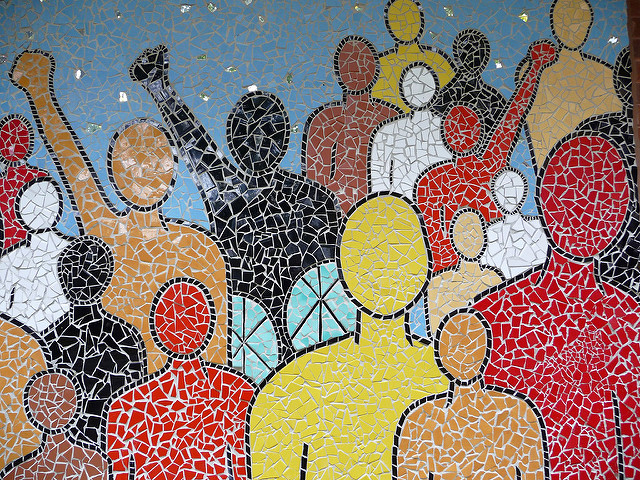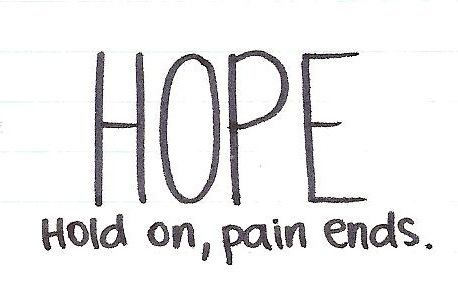There are too few nonprofit organizations like CC fighting for the commons – support our vital leadership with an end of year contribution. Donate today!
The Platform Cooperatives Movement Helps Light up the Commons
About CC, EventsThe Creative Commons upcoming Global Summit is the first major opportunity to introduce our community to the newly-born Platform Cooperatives Consortium and to look for ways our two movements, which share many core values, can collaborate.
We have just entered a time of potentially enormous social turmoil. Like the 1960’s, it could also set the stage for some unexpectedly positive outcomes, this time, in ways that transform labor markets and business ownership structures. A powerful backlash to unchecked corporate power is gaining momentum. As it unfolds, Creative Commons, the Platform Cooperatives Consortium, and our allies around the world can play decisive roles in these labor market transformations. In fact, as 2017 dawns, there are at least two big reasons to be optimistic about the opportunities ahead for grassroots actions that lead to large-scale constructive social change. What’s more, everyone can help.
The first is the five-year “Lighting up the Commons” vision crystallized last year by Creative Commons CEO Ryan Merkley. This vision has already helped generate remarkable progress including more collaborative approaches to federally-funded scientific research in the U.S. and smarter government policies around the world. The three central pillars of the Lighting up the Commons strategy are discovery, collaboration, and advocacy. The strength of this inclusive strategy? It’s entirely community-driven and features an explicit focus on empowering changemakers with the substantial support and scaffolding of Creative Commons.
The advent of the nascent “Platform Cooperatives Movement,” reminiscent of Creative Commons during its salad days, is the second reason for optimism. Through this movement, a thing of beauty is being born.
Platform cooperatives rely on shared governance guidelines known as the Rochdale Principles that provide for democratic governance and profit-sharing and are generally designed to reinforce non-exploitative, mutually beneficial commercial relationships.
Last year’s Platform Cooperatives Consortium organizing meeting, hosted at the New School in New York by the activist scholar Trebor Scholz, was thrilling. One rapid-fire inspiring moment after another conveyed the sense of a world under repair.
This is from the platform co-op call to action: “The cooperative platform economy can become one of the counterforces to the defects of the on-demand economy. It is a strategy for reversing wealth inequality, gender inequity, environmental degradation, and systemic racial injustice. The experiments now already underway show that a global ecosystem of cooperatives can stand against the concentration of wealth and the insecurity of workers that yields Silicon Valley’s winner-takes-all economy. They show that the Internet can be owned and governed differently.”
At the conference, we learned that taxi drivers in cities including Denver, Colorado have organized themselves into worker-owned co-ops such as the Green Taxi Cooperative, an Uber-like service complete with a sleek smartphone app that is fully owned and run by the drivers themselves, whose rates of pay, job security and benefits have all increased. We also heard from feminist officials recently elected in Barcelona, Spain who are providing municipal support for the rollout of publicly-owned digital platform cooperatives, including an alternative to sites such as Airbnb. Barcelona residents who rent out their homes or apartments using the new platform cooperative will be rewarded with a share of revenue from other hosts, enjoy a more reliable income stream, and gain other benefits of platform ownership when they agree to pay taxes, operate transparently, and abide by local laws. We heard from workers on Amazon’s Mechanical Turk casual labor service who have organized themselves into a powerful new force online through TurkerNation.com, based in part on platform cooperative ideas after suffering appalling abuses, including instances when remote workers were asked to caption beheading videos posted to the site by the Islamic State.
Harvard legal scholar Yochai Benkler, a longtime friend of Creative Commons, did the math in his keynote address: there is enough slack in global production and distribution chains, Benkler calculates, to enable rising standards of income, living and municipal services around the world if we use technology to reduce or entirely eliminate those who play a primarily “extractive” role in markets, the players whose main or sometimes only function is to come between the producers or providers of goods and services and consumers.
We’re talking about nurturing a return to a more humane form of capitalism, to the way agricultural cooperatives used to work and still do in some regions where farmers take turns harvesting each other’s fields and share storage silos and other facilities and equipment. There is already a home healthcare service that is owned by the nurses it employs, and artist and photographer co-ops such as Stocksy that pool some expenses and revenues. One day there may even be search engines and social media firms that are owned by their users, who would then gain full control over the data they produce and who could as groups or individuals negotiate their own relationships with advertisers and news media services who seek their attention.
But perhaps the most important takeaway from last year’s Platform Cooperatives Consortium organizing meeting was the message it conveyed not to despair or lose hope.
When they’re able, people revolt against tyrants and the tools of oppression and exploitation are reworked in different hands into tools of liberation and freedom. People of good will and vision can put these tools—the Internet and information technologies—to far better use than we do now. Spain’s Mondragon Corporation, for example, is a network of worker-owned co-ops that has successfully resisted takeover by stateless multinational firms and now employs more than 70,000 people. In the U.S., approximately 30,000 co-ops presently contribute an estimated $154 billion to our national income, which provides a base on which more worker-owned businesses can be organized, constructed, and sustained. Imagine what might happen if government procurement policies here in the U.S. and around the world favor firms that are cooperatively owned by workers rather than controlled by global capital.
Platform cooperatives can put a brake on income inequality by making sure the voice of workers does not remain submerged in the digital age. They could also be the only way workers and Internet users can become masters—and owners—of powerful artificial intelligence systems that can’t be built without data we all produce.
That’s why I am delighted to report that Creative Commons’ organizers recently reached out to personally invite leaders of the Platform Cooperatives movement to participate in our upcoming Toronto Global Summit—and to also pitch ideas for panels and workshops. Together, we can look for ways to strengthen our ability to shape a better future.
The Internet is not finished yet and the future is in our hands. I hope to see you in Toronto!
Hal Plotkin is the Senior Open Policy Fellow at Creative Commons USA, the U.S. affiliate of Creative Commons. He served as a Senior Policy Advisor in the U.S. Department of Education during the administration of President Barack Obama (2009-2014). In 2002, Mr. Plotkin authored the first article ever published about Creative Commons.
Posted 24 January 2017



